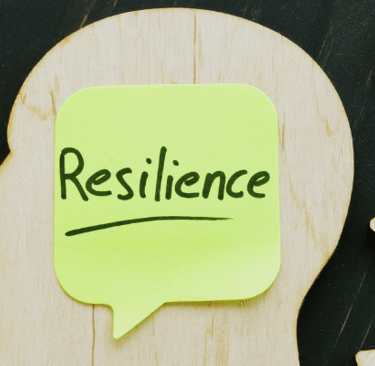Mental Resilience
In this insightful blog post, we explore the power of mental resilience and how it helps individuals overcome life’s challenges. Whether you're a veteran, first responder, or someone facing personal struggles, developing resilience is key to navigating adversity with strength and confidence. Learn practical strategies to build resilience, manage stress, and maintain a positive mindset, empowering you to adapt, recover, and grow stronger. Read on to discover how resilience can transform your approach to hardships and help you thrive in any situation.
3/19/20252 min read


Building Mental Resilience: The Key to Overcoming Life’s Challenges
Life is full of obstacles, setbacks, and unexpected challenges. Whether you’re a military veteran, first responder, or someone navigating the ups and downs of everyday life, mental resilience is a crucial skill that can help you thrive. Mental resilience isn’t about avoiding stress or hardship—it’s about developing the ability to adapt, recover, and grow stronger in the face of adversity.
What is Mental Resilience?
Mental resilience is the ability to bounce back from setbacks, adapt to change, and keep moving forward despite difficulties. It’s not about being invincible or never feeling overwhelmed—it’s about having the tools and mindset to handle life’s difficulties with strength and determination.
Resilience involves emotional regulation, self-awareness, and the ability to shift perspectives when facing challenges. It’s about recognizing that setbacks are temporary and that you have the power to take control of your response to adversity.
Why is Mental Resilience Important?
For veterans, first responders, and military personnel, mental resilience is essential. The high-pressure environments they work in demand the ability to cope with stress, trauma, and unpredictable circumstances. But resilience is just as important for anyone facing personal struggles, workplace stress, or major life transitions.
Some key benefits of mental resilience include:
Better Stress Management: Resilient individuals handle stress more effectively and are less likely to experience burnout.
Improved Emotional Well-Being: Resilience helps regulate emotions, leading to a more positive outlook on life.
Stronger Relationships: Mentally strong individuals communicate better, maintain healthier relationships, and seek support when needed.
Greater Adaptability: Resilient people are better equipped to navigate change and uncertainty.
How to Build Mental Resilience
The good news is that mental resilience is not a fixed trait—it’s a skill that can be developed over time. Here are some effective strategies to strengthen your resilience:
1. Develop a Growth Mindset
Adopt the belief that challenges and failures are opportunities for growth. Instead of seeing setbacks as roadblocks, view them as lessons that will make you stronger.
2. Practice Self-Care
Taking care of your physical and mental well-being is essential. Exercise regularly, eat a balanced diet, and ensure you get enough rest. Activities like meditation, deep breathing, and journaling can also help reduce stress.
3. Build a Strong Support System
Surround yourself with people who uplift and support you. Don’t be afraid to reach out for help when you need it—resilience isn’t about going through hardships alone.
4. Strengthen Emotional Regulation
Learn to manage your emotions in a healthy way. This can include mindfulness practices, talking through feelings with a trusted friend, or seeking professional guidance if necessary.
5. Stay Connected to Your Purpose
Having a strong sense of purpose can help you push through difficult times. Whether it’s serving your community, supporting your family, or working towards personal goals, a clear purpose gives you the motivation to keep moving forward.
6. Embrace Change and Uncertainty
Resilient individuals accept that change is a part of life. Rather than resisting it, they learn to adapt and find solutions in new situations.
7. Learn from Setbacks
Instead of letting failures define you, use them as opportunities for growth. Reflect on what went wrong, identify lessons, and move forward with newfound wisdom.
Final Thoughts
Building mental resilience takes time and practice, but the rewards are invaluable. Whether you’re navigating the challenges of military service, adjusting to civilian life, or simply facing personal struggles, resilience can help you come out stronger on the other side.
Remember, resilience is not about avoiding hardship—it’s about facing it head-on, learning from it, and emerging more powerful than before. Take small steps each day to strengthen your mindset, and you’ll find yourself better equipped to handle whatever life throws your way.
© 2025 Meant2BeFit. All Rights Reserved. Unauthorized duplication or distribution is prohibited.
